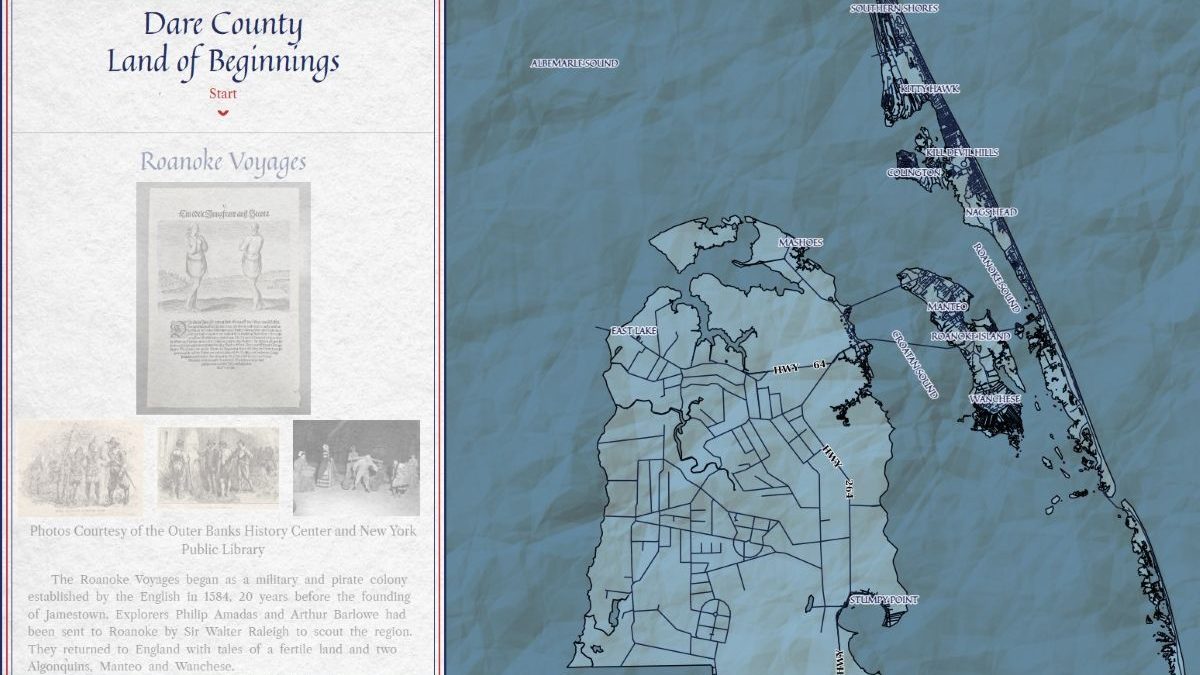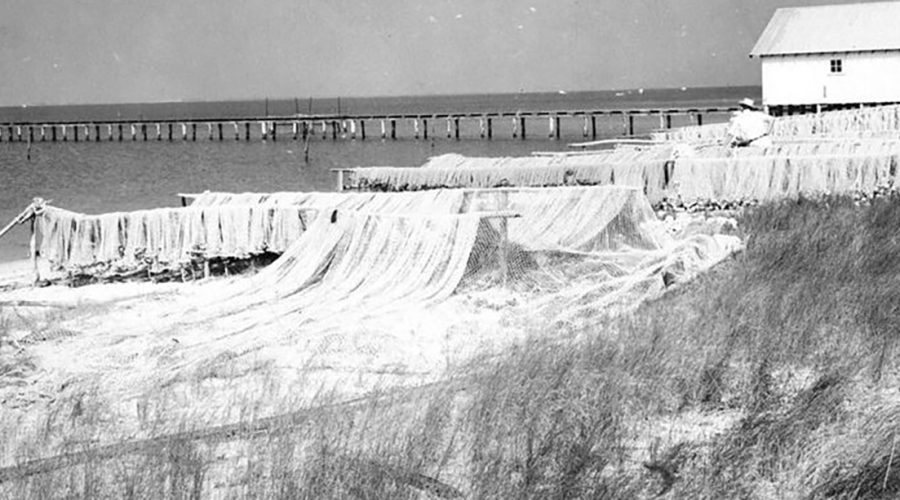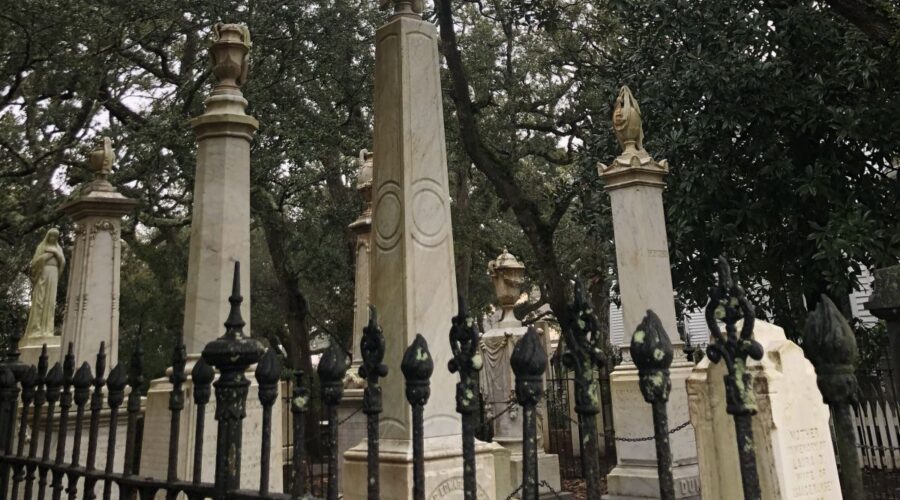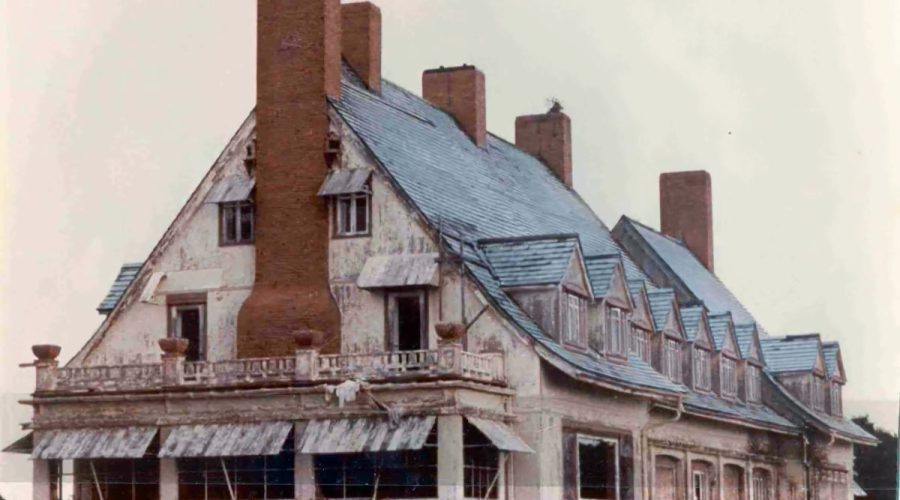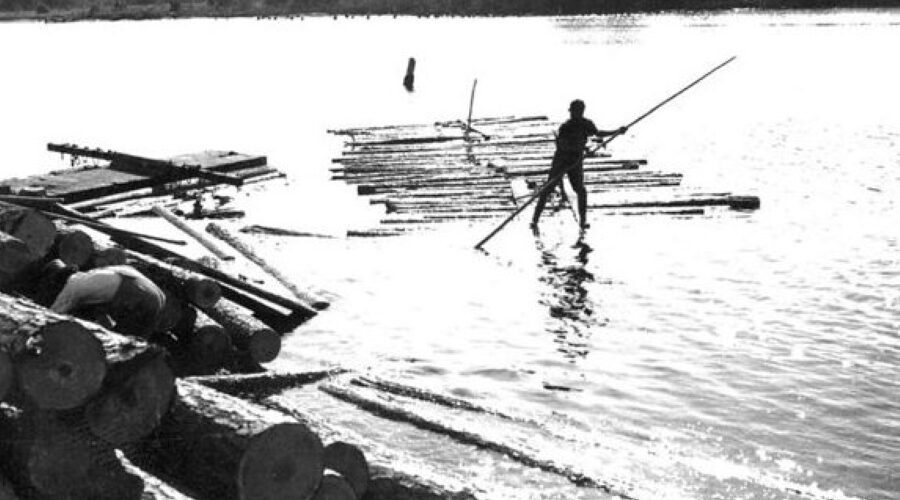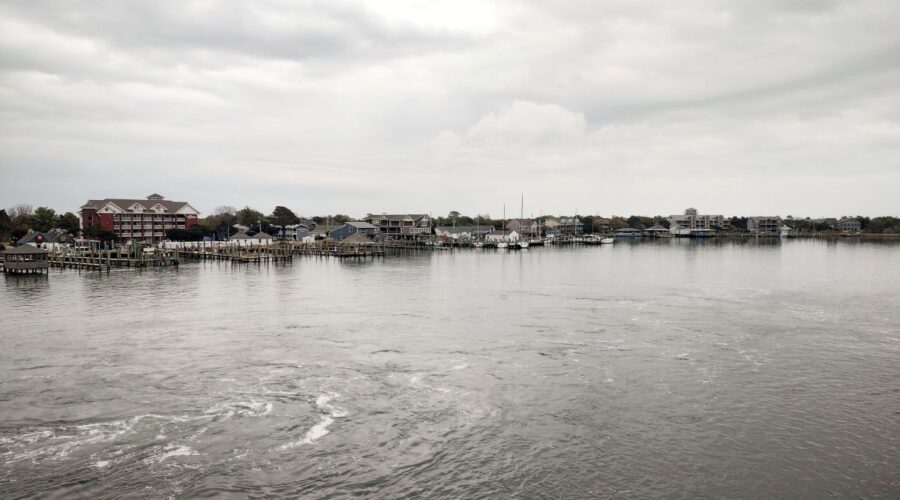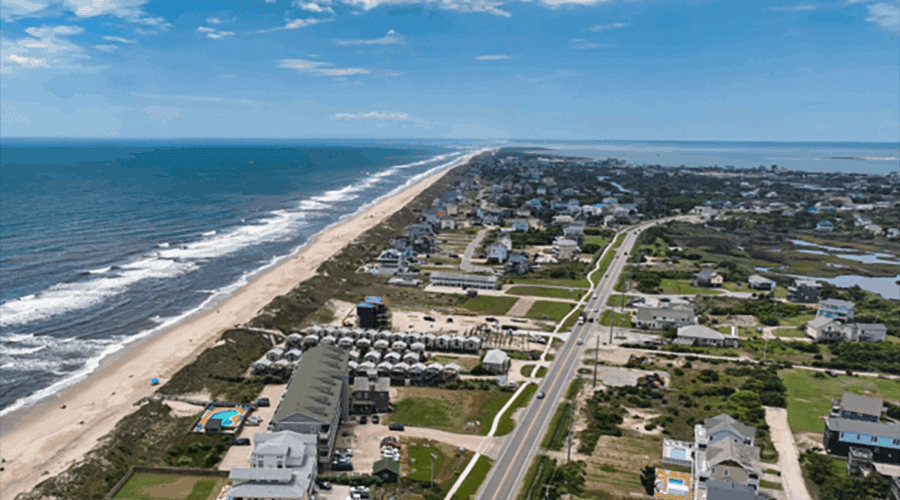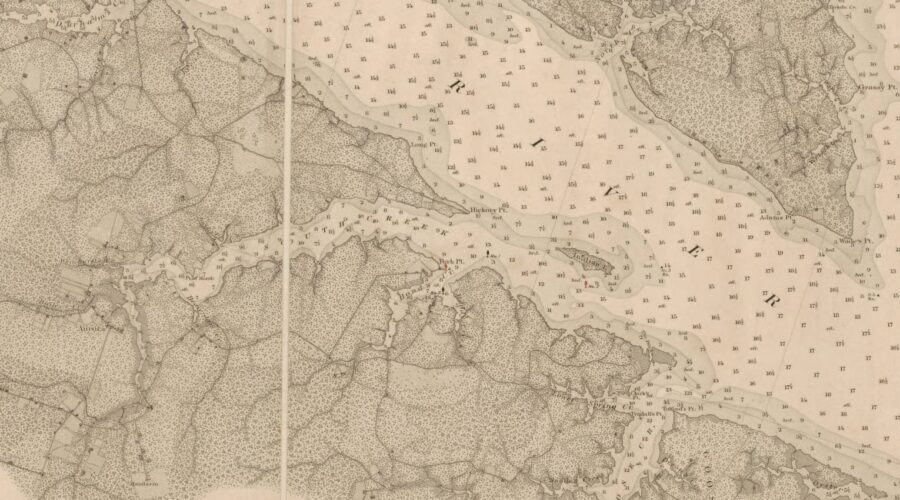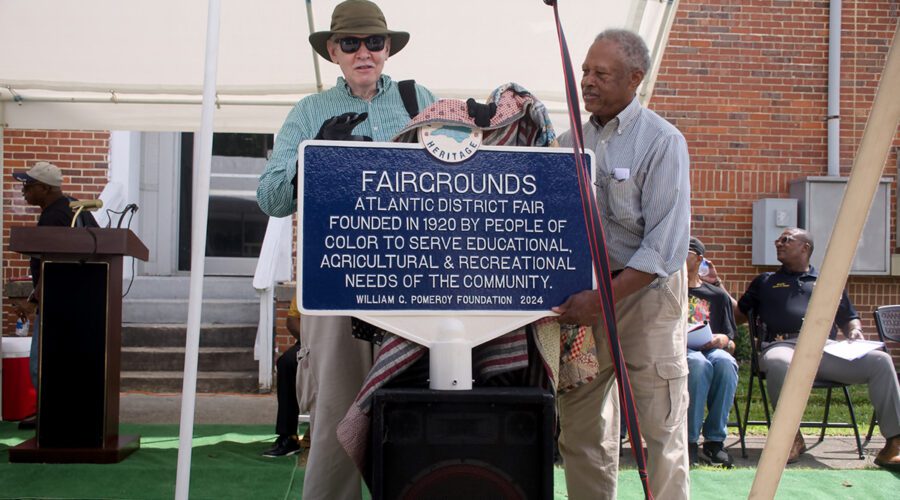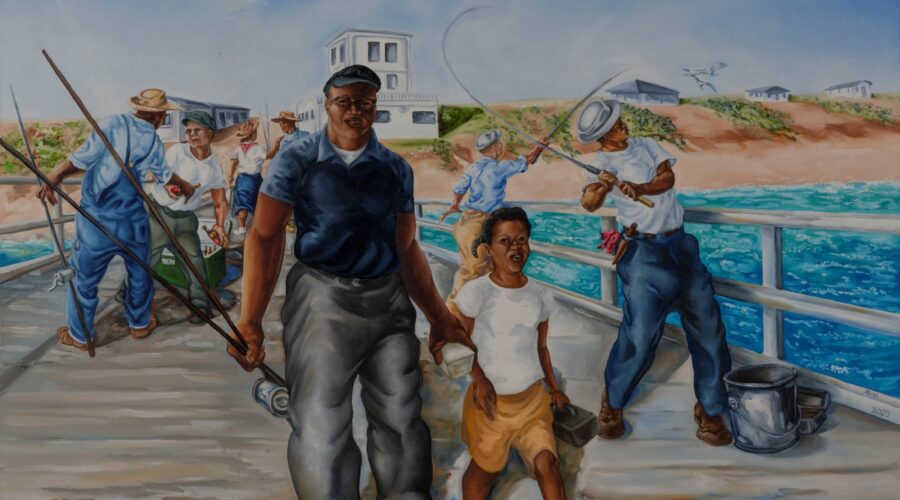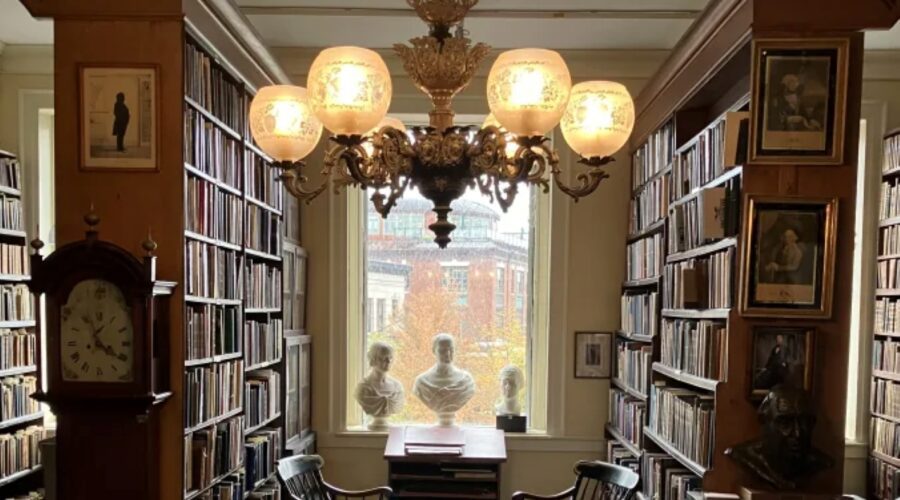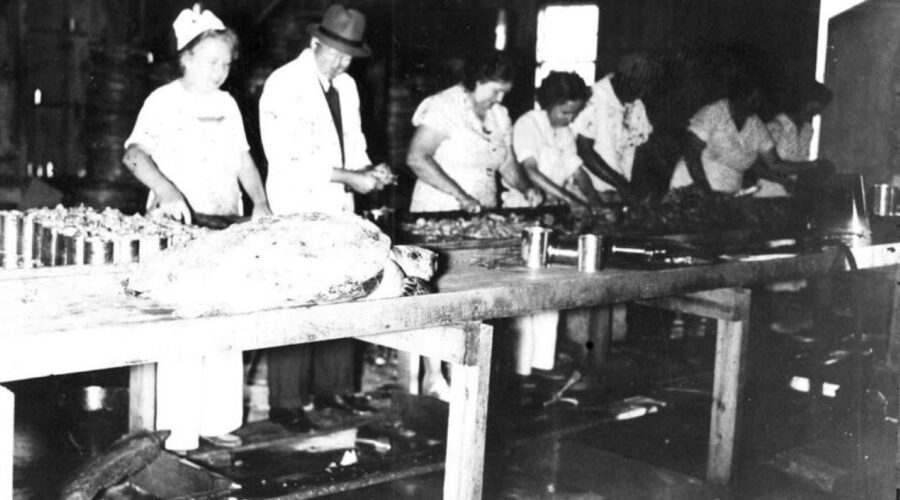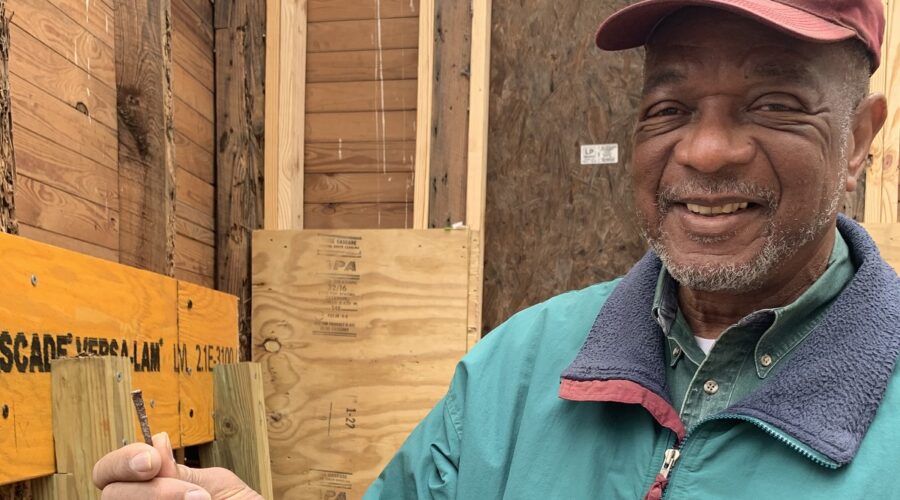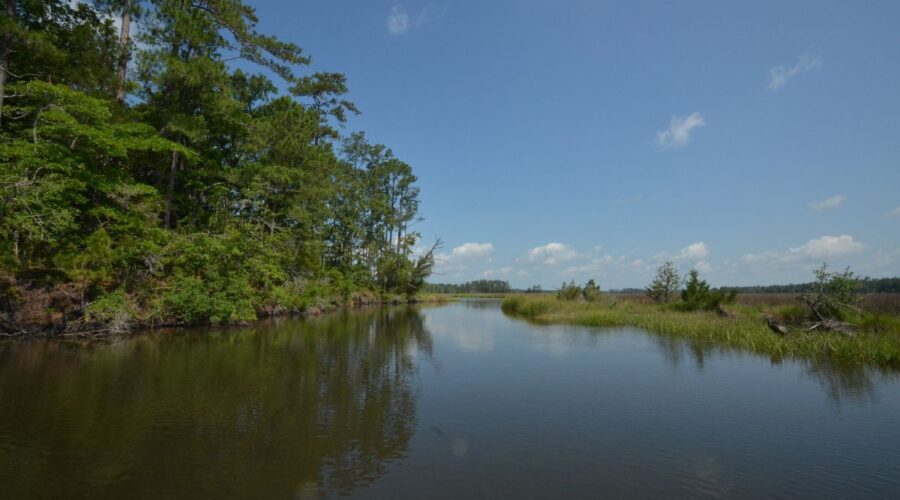Dare A250, the county’s planning committee for America’s 250th, has begun celebrating with an interactive map and passport program that focuses on Dare’s contributions to the nation’s origins.
Places
Our Coast: On the shores of Harkers Island, 1944
Historian David Cecelski looks beyond the tranquil scene in this image featuring Capt. Stacy Davis, his fish house and nets on Harkers Island, and at the great upheaval here in the years between the 1933 hurricane and just after World War II.
Records point to 13 unmarked graves in Old Burying Ground
Carteret County native Bill Lewis has spent the last few years digging through records to corroborate what he’s always heard: that 13 of his ancestors are buried in unmarked graves in the Old Burying Ground.
Historic Whalehead Club to mark centennial in October
The centennial of the 21,000-square-foot art nouveau mansion and centerpiece of Historic Corolla Park will be commemorated in October with special tours and other ticketed events.
Cape Lookout Lighthouse set for $15 million renovation
The 163-foot-tall tower will soon shed its distinctive black-and-white diamond pattern, expose its red bricks not seen since 1873 and don newly refurbished ironwork, safety improvements and breathable paint as part of the preservation effort.
Historian explores the working lives of eastern NC 1937-1947
Historian David Cecelski introduces a series of photo-essays focusing on the working lives of people in eastern North Carolina just before, during, and after the Second World War.
Linguists examine Ocracoke’s unique brogue in new book
“Language and Life on Ocracoke: The Living History of the Brogue” explores the isolated village’s once-prominent dialect now only spoken by a few hundred on the island.
Hatteras Village, long sparsely inhabited, retains quiet charm
Historic Hatteras Village is a popular destination for tourists and North Carolinians alike, yet its residents and the National Park Service help to maintain its adaptive, peaceful character.
Our Coast: Remembering Betty Town
Historian David Cecelski has “devoted a fair bit” of historical research to the people of Betty Town, how their land was taken, and how the community’s people were driven out of their homes to make room for the new town of Aurora, but there is much he doesn’t know.
Groups dedicate marker for historically Black fairgrounds
A William G. Pomeroy Foundation Hometown Heritage marker recognizing the Atlantic District Fairgrounds, founded by people of color in 1920, was dedicated last month as part of a Juneteenth celebration in Ahoskie.
Rik Freeman’s art examines America’s segregated beaches
An exhibit opening this weekend in Jacksonville features paintings by artist Rik Freeman of Washington, D.C., that depict stories of African American beach communities during the Jim Crow era.
Four-day fête honors Jockey’s Ridge State Park’s 50th year
Preserved from development by Carolista Baum, a mother of young children, who blocked a bulldozer, declared a National Natural Landmark and made a state park 50 years ago, an occasion recently celebrated by officials and throngs of visitors.
Our Coast: ‘Cast on shore, at a place called Ocracock’
On a recent trip to New Hampshire, historian David Cecelski pored over historic accounts and survivors’ sworn affidavits pertaining to shipwrecks, storm damage, insurance claims and the North Carolina coast.
‘Working Lives’: Canning sea turtles, Marshallberg, NC, 1938
When the cannery that opened in Marshallberg, a little village in Down East Carteret County, in 1937 ran out of oysters, tomatoes or other crops to can, they turned to canning sea turtles, writes historian David Cecelski.
Bittersweet event: Restored Reaves Chapel to be dedicated
The long, challenging restoration of one of the oldest African American buildings in southeastern North Carolina is finally complete, albeit after the death of one who spent the last 15 years of his life fighting to preserve it.
Lockwood Folly has a name as unique as its history
Wake Tech Community College history instructor Eric Medlin dives into the possibilities of how the river and inlet in Brunswick County earned its name.

